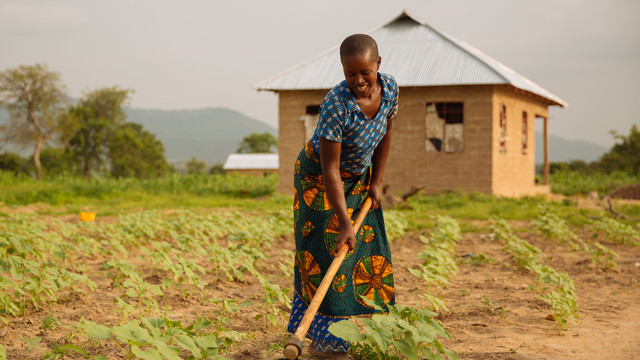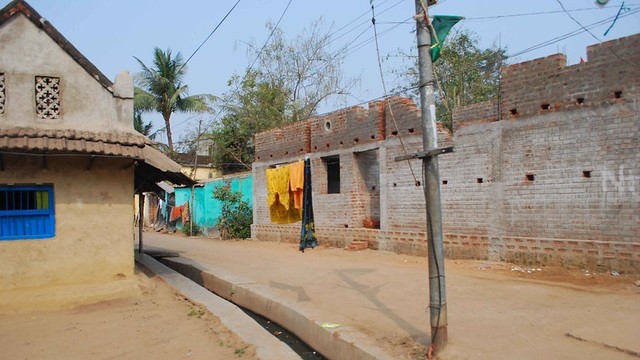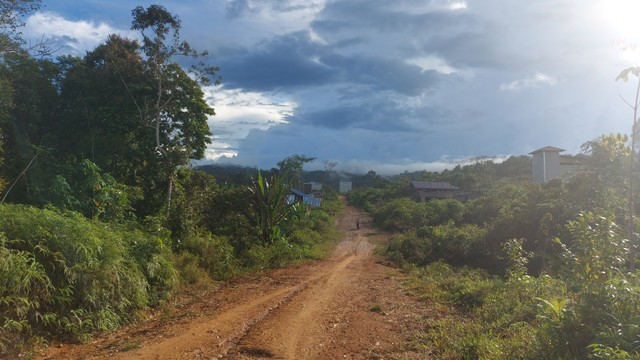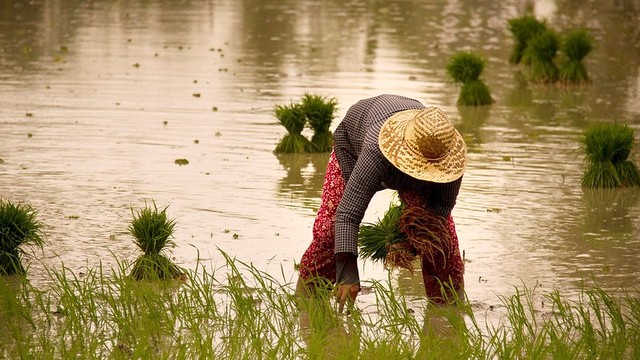Special Economic Zones: global trends and issues in Senegal and Madagascar
This IIED webinar on Wednesday, 21 September discussed the topic of special economic zones and the broader questions they raise, particularly in Senegal and Madagascar

The Mae Sot Special Economic Zone in Thailand (Credit: Prachatai, via Flickr, CC BY-NC-ND 2.0)
The Technical Committee on Land and Development (CTFD) initiated a study on special economic zones (SEZs) and land. IIED led the project in partnership with Enda Pronat and the Cadre de Réflexion et d'Action sur le Foncier au Sénégal (CRAFS) and CIRAD with the contribution of the Collectif Tany ofde Madagascar, in close collaboration with GRET, which serves as the secretariat of the CTFD.
On Wednesday, 21 September experts presented the results of the international literature review on SEZs and discussed findings from Senegal and Madagascar and how the study has advanced the debate in these two countries.
SEZs are demarcated geographic areas contained within a country’s national boundary where the rules of business are different from those that prevail in the national territory.
They aim to attract investors by offering favourable customs and tax regimes, a competent and competitive labour pool, and settlement conditions that are supposed to offer legally secure, conflict-free access to land. A wide range of actors (from China to the World Bank) support this model of economic development, which has been adopted in about 100 countries.
Many studies on SEZs focus on their economic performance. Far less attention has been paid to how their creation and operation affect land rights, or the broader questions they raise about territorial governance, legislation and economic development models.
Project findings are presented in three reports on 'Special Economic Zones and land tenure: global trends and local impacts in Senegal and Madagascar', 'Investment zones in Madagascar: characteristics and land tenure impacts', and 'Thematic workshop on Special Economic Zones in Senegal'. The first report can be accessed here, and the other two will be published shortly.
Panellists
- Amel Benkahla, programme manager at GRET and in charge of the scientific coordination of The Technical Committee on Land and Development
- Matthieu Le Grix, head of the agriculture, rural development and biodiversity division at the French Development Agency (AFD)
- Dr Lorenzo Cotula and Thierry Berger, respectively principal researcher and associate in IIED’s law, economies and justice programme
- Dr Perrine Burnod and Heriniaina Rakotomalala, respectively researcher at CIRAD; and land expert and phd candidate at the Institut d’Agro from Montpellier and Antananarivo University
- Dr Alpha Ba, lecturer and researcher at the École Nationale Supérieure d'Agriculture (ENSA), University of Thiès
- Mamy Rakotondrainibe, president of the Collective for the Defense of Malagasy Land (TANY)
- Nakhla Tine, president of the Collective for the defence of the interests of the Sandiara SEZ, Senegal
The webinar was designed for civil society organisations, NGOs, private sector, development agencies and public authorities.
About the speakers
Amel Benkahla, programme manager at GRET and in charge of the scientific coordination of The Technical Committee on Land and Development for more than 10 years. Amel Benkahla is an agro-economist and works in support of agro-ecological transition dynamics, local governance and network management. GRET works in some thirty countries to support the most vulnerable. Its actions are based both locally - listening to communities and at the territorial level - and internationally, in advocacy and knowledge sharing. GRET innovates by capitalising on its experiences, through a permanent process of research-action, by promoting local approaches, and by creating links between the various actors, all over a period of time long enough to have a significant impact.
Matthieu Le Grix is head of the agriculture, rural development and biodiversity division at the French Development Agency (AFD) since 2021. An agricultural engineer, he worked for ten years as a project officer in several local AFD agencies in Burkina Faso, Cameroon and Tunisia. He also held positions in the department in charge of analysing the environmental and social impacts of projects. He joined the agriculture, rural development and biodiversity division in 2018. There he supervised AFD's sector operations in the Sahel, Gulf of Guinea, Maghreb, Near and Middle East and Latin America. He also contributed to AFD's strategic work, notably on the themes of food security, agroecology and territorial approaches to rural development.
Dr Lorenzo Cotula is principal researcher (law and sustainable development) and team leader of the law, economies and justice programme in IIED's Natural Resources research group. He leads research, policy engagement and field-level projects on the legal arenas where natural resource governance meets the global economy – cutting across land and natural resource law and governance; international economic law; law and transnational value chains; human rights; political economy of natural resources and foreign investment; and legal empowerment, citizen agency and public accountability.
Thierry Berger is an associate with IIED's law, economies and justice programme. He is a qualified solicitor and French lawyer who has collaborated closely with IIED since 2013 – conducting research, co-authoring reports, running legal tools webinar series and contributing to the team's international capacity support and lesson sharing work.
Dr Perrine Burnod is researcher and economist at the French agricultural research and cooperation organisation (CIRAD) based in Madagascar. Perrine deals in particular with the development and implementation of land policies, local governance and land management, the plurality of land security methods, the dynamics of land markets, the effects of land reform and major land acquisitions.
Heriniaina Rakotomalala, a land expert, has been carrying out expertise and research work for the administration, civil society, research centres and development projects for about ten years in Madagascar. These interventions have focused on access to and securing of land for households and agricultural enterprises. Since the end of 2018, Heriniaina has been a PhD candidate in economics at the Institute of Agro of Montpellier and the University of Antananarivo on "the equity of land markets for natives and migrants in Western Madagascar". Heriniaina is also co-founder in 2022, of the "Think Tany" a working, training and expertise group on land issues at the University of Antananarivo.
Dr Alpha Ba is lecturer and researcher at the École Nationale Supérieure d'Agriculture (ENSA), University of Thiès. Alpha holds a PhD in Sociology. As a consultant specialised in agricultural, land, gender and human rights issues, he has more than 15 years of experience and has accompanied many public organisations in Senegal, as well as NGOs and international institutions, in research and training sessions on those topics.
Mamy Rakotondrainibe: president of the collective for the Defense of Malagasy Land (TANY). TANY is a civil society organisation that fights against land grabs that affect citizens and farmers in Madagascar.
Nakhla Tine, president of the Collective for the Defence of the Interests of the Sandiara SEZ, Senegal and president of the Urban Planning and Housing Commission of the municipal council.
Event coverage
A recording of the event is available below or on IIED's YouTube channel.
You can find the presentations delivered during this webinar on IIED's SlideShare.
You can also view the panelists' presentations on IIED's SlideShare channel.
IIED events newsletter
Sign up to our mailing list for updates and invitations to events throughout the year, including webinars, critical themes and debriefs.
Contact
Thierry Berger (thierry.berger@iied.org), associate, IIED's Natural Resources research group




